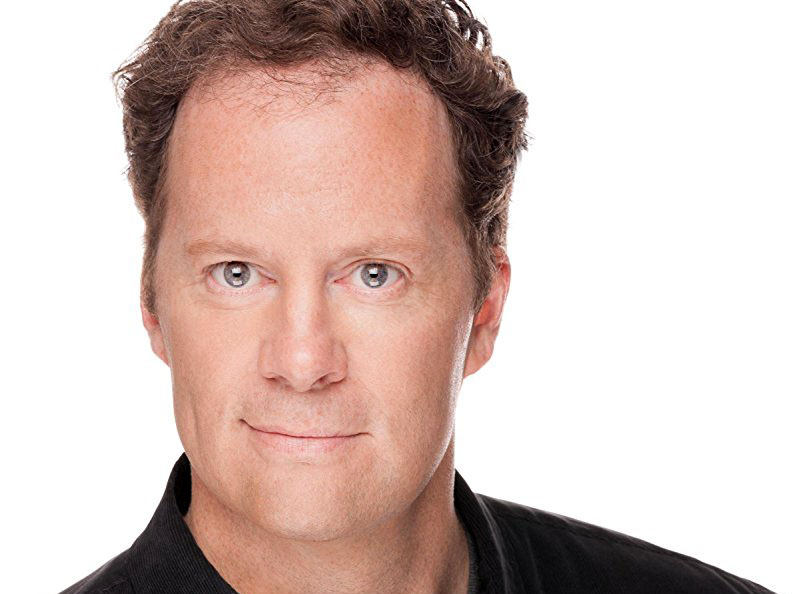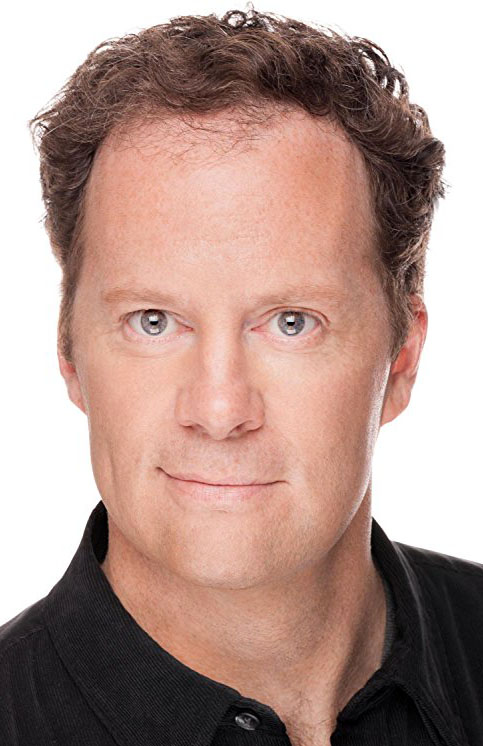 SHULER HENSLEY appears in THE WHALE which is currently at the Ustinov Studio in Bath. He won the Olivier Award for Best Supporting Actor in a Musical for his performance as Jud Fry in the National Theatre’s Oklahoma!
SHULER HENSLEY appears in THE WHALE which is currently at the Ustinov Studio in Bath. He won the Olivier Award for Best Supporting Actor in a Musical for his performance as Jud Fry in the National Theatre’s Oklahoma!
Hensley’s other stage credits include starring alongside Sir Ian McKellen and Sir Patrick Stewart in the Broadway productions of Waiting For Godot and Pinter’s No Man’s Land; Inspector Javert in Les Misérables in New York and the title role in The Phantom of the Opera in Frankfurt.
For people who are new to the play how would you sum up the basic premise of The Whale?
It’s about a 600lb morbidly obese man who is sort of trapped in his apartment. He’s experiencing a health crisis which forces him to try to come to terms with the relationships in his life. It all takes place in his apartment and all the people come to him in the last few days of his life. He’s trying to tie up loose ends and to say what he wants to say to people he hasn’t seen, doing everything we hope we’d be able to do towards the end of our lives.
How would you describe the character of Charlie?
He was originally described as ‘a 600lb morbidly obese online tutor’ and when I heard that as a character actor I was like ‘I’m going to do this role, it’s a dream’. That’s how he’s described but that’s basically just the outer layer, then you find it’s really a show about empathy and trying to come to terms with people who have wronged you and who you have wronged in your life – trying to be empathetic and to put yourself in their shoes. It goes from the initial shock of ‘Oh my gosh, this is going to be disgusting’ to looking at what are the redeemable human qualities we all possess regardless of what we look like.
What do you find people most respond to in terms of the themes?
What’s glorious about this show is that whether we want to admit it or not, as human beings we tend to pre-judge based on our initial encounter with them and that’s usually a visual thing. With somebody who is 600lbs and is in severe physical ill health you think ‘This person probably eats too much blah blah blah’ but what’s great about it is that as the play goes along you see that not only is that not really the issue but also a lot of what this character possesses we all possess. What’s so touching about the play is that we can all relate to Charlie. The things he’s had to deal with are, I think, things we all deal with.
What are you most excited about bringing it to the UK?
I’ve worked over here quite a lot and I really got my start at the National Theatre in Oklahoma. My wife is British and my in-laws are all over here so whenever I do something in the States that I’m really proud of I always think ‘What’s the scenario where I’d be able to bring it to the UK?’ It’s taken a few years but I’ve always said to Samuel D. Hunter [the writer] that I’d love to be involved in this if it ever transferred to the UK. It couldn’t be a more timely theme in terms of trying to empathise with our fellow human beings and overcome our initial reactions of intolerance, hate, whatever. It asks ‘What are the core things that are most important in life?’ and that’s usually love and empathy and trying to help one another. That’s all within this play and it’s all captured in a single room.
How is it for you as an actor working within a single setting?
I find it fascinating. I’m pretty much grounded into the sofa so I feel very centred. Charlie gets up twice but only to go out to use the bathroom, which takes great effort. He’s sort of like a planet in the centre of the stage with all the characters orbiting around him. I had a morbidly obese aunt so I know about the trouble with breathing and the physical ailments that come with being that size. It’s sort of overwhelming and the physical toll of doing this show, even though I’m seated for most of it, is extraordinarily exhausting because you’re emulating what it’s like to be that way on the inside as well as the outside.
This marks your UK regional theatre debut, doesn’t it?
It does, yes. I’ve done some shows in London but I have not performed in a regional UK theatre before. I love the idea of it because I’m a regional theatre advocate in the States. Given how expensive it is in the States to create productions that go straight to Broadway, regional theatres are really where new and inventive plays and musicals are created. It’s a chance to sort of have a laboratory and to experiment things without [laughs] going bankrupt.
Have you visited Bath before and how will you be spending your downtime whilst you’re here?
My mother-in-law lives in Calne, which is about 40 minutes away, so I’ve been to Bath as a visitor for a weekend but I haven’t spent a huge amount of time there. I’m really looking forward to it, especially because I’m a big walker. I’ll probably walk from one end to the other and everywhere in between so I can experience what Bath is like. It’s a beautiful part of the world. I love driving down into that area.
What do you feel makes the Ustinov Studio the ideal venue for the show?
It’s such a small theatre and that brings an added dimension because you really want the audience to feel as if they’re in the apartment with Charlie and his family. You want a sense of claustrophobia and that’s easier in a small-sized house. I’ve not been in the Theatre Royal or the Ustinov before but I’ve spoken to Maureen Lipman, Leslie Joseph and Ian McKellen and they all just raved about how wonderful the theatre is.
Have any revisions been made from the original Off-Broadway production?
The storyline is exactly the same but if there’s any kind of reference that may have been understandable in the States but not over here, like U-Haul for example, then we’re doing away with it or finding something similar that would work instead.
Is it a challenge for you as an actor not being able to move around?
It is but I love it because when you’re rooted and you’re forced to act from a static position you really have to allow for words and emotions and limited gestures to play an important part in the character. It’s surprising how much you can focus on what you’re feeling when you don’t have to go from upstage right to downstage left or what have you and incorporating all this choreography, so to speak, instead of just sitting the character down and having him tell his story.
How is Charlie’s size achieved on stage?
There’s a fat suit that was created for the original production that was designed for my body about five years ago and we’ve actually brought it over. It really is like another character in the show because it’s so massive. It’s around 60/65lbs and it’s clumped in such a way that it really helps you feel what it’s like to carry that extra weight around because your balance is off and you’re clumsier around corners or seating. I’ve been wearing it from the first rehearsal onwards because it’s really important to know what it’s like to be that size in a room with other people who aren’t that size. It’s funny because I lose weight when I play this role and I always say ‘If you want to lose weight then play a morbidly obese man’. [Laughs] It’s one of the best diets I’ve ever been on.
From researching the role, what have you learned about obesity?
There are so many different factors in terms of how people arrive at this physical weight and stature. Everyone is quick to assume it’s an eating disorder, but that’s really not the case – it’s psychological, it’s hereditary, it can be due to any number of things. What I found interesting in terms of my aunt and people I’ve directly been involved with who weren’t necessarily morbidly obese but certainly confined because of their size is that there’s sort of an honesty with communicating when you know what people assume just by looking at you.
You were Jud in Oklahoma, The Grinch in How The Grinch Stole Christmas and the monster in Young Frankenstein. What attracts you to outsiders and outcasts?
I’m 6ft 3ins so I’m a big guy and when people look at me I’m sure they think of me as the villain or the heavy. But I love taking characters who might be classified as monsters or outsiders and accentuating the qualities they have which we all have, so without really knowing it the audience becomes empathetic – not sympathetic but empathetic so they can actually be in the characters’ shoes and know what it’s like from their perspective. I always say ‘There’s a villain and an outsider in all of us and we’ve all felt like that from time to time’.


